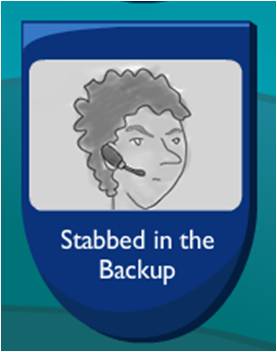Sin
Ingeniously, in the game, after reporting a deposition, one of the party’s counsel calls the reporter to complain, saying she believes the reporter made some mistakes in the transcript, and asks her to provide the audio backup for verification. Instead of the reporter asking counsel to provide the exact page and line she’s concerned about, counsel asks the reporter to provide her with the audio so that she can determine for herself whether the reporter erred. Without thinking, she provides counsel the audio.
What happens after that is nothing short of disastrous because she could have invoked her right not to provide counsel with the backup, as ruled in Emmel v. Coca-Cola Bottling Co. of Chicago, Inc., 904 F. Supp. 723,753, but did not.
Secondly, having agreed to provide the backup, she failed to contact opposing counsel and advise him that a request for the audio had been made.
Thirdly, she failed to ask all parties for a written stipulation agreeing to production of that audio.
Fourth, she did not listen to the audio.
Fifth, had she listened to the audio, she would have discovered that a confidential attorney-client discussion had been inadvertently recorded, and that having provided it, she is in violation of Provision 4 of COPE, which requires reporters to “preserve the confidentiality and ensure the security of information, oral or written, entrusted to the Member by any of the parties in a proceeding.”
Had the reporter been aware of the rules, she would not have been brought before the COPE Committee and found herself suspended from earning a living as a reporter for three months.
Knowing that your audio backup is absolutely and exclusively yours, that you are the keeper of that record, and that you are not expected to share it with anyone unless ordered to do so by the court, offers you the opportunity to preserve your ethical and moral obligations under the law as a reporter.
However, if you, as the reporter, are ordered to provide counsel with a copy of your audio backup, you will want to preserve your ethical standing by listening to the audio yourself, verifying that there are no confidential conversations within it, and only then provide copies to all parties, with the original remaining in your custody.
If, when you listen back to the audio backup, you discover that there are, in fact, confidential conversations therein, you will want to contact your own legal counsel, who will be able to advise you as to the laws in your state governing redaction of confidential conversations, as well as next steps. Knowing your rights and responsibilities empowers you to remain an ethical, unbiased keeper of the record.
